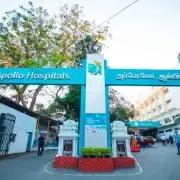How to prepare for a Surgery in India
In This Article
How to prepare for a Surgery in India
Ashitha Kareem
Updated on October 18, 2024
Medically verified by Dr. Arya
Fact checked by Dr. Fazeela

Medical Travel
10 minutes
Whether it’s a major or minor surgery, the preparation often leaves room for both anticipation and fear.
In India, with the advancement of medical technologies and as a leading hub of medical tourism, patients can face surgery with more confidence.
If you have a surgery scheduled soon, you might be experiencing a mix of emotions. Karetrip is here to help you. Understanding how to prepare for a surgery helps you reduce your stress.
How to prepare for a Surgery in India
1. Prepare a Hospital Bag
-
Along with your toiletries, add a bathroom slipper, some extra towels, a hot water flask and a shaving set.
-
Best Indian hospitals provide basic amenities but you can carry extra blankets and heating pads since shivering or having chills is a very common post operative response. These are not dangerous but can be very uncomfortable.
-
You need to carry your mobile, chargers, headphones or some books since a long hospital stay can be very boring.
-
Also make sure to carry all your medical certificates, results of your blood tests or X-rays along with the necessary paperwork required for insurance purposes.
-
You can check with the hospital regarding these details.
2. Follow Doctors Advice Promptly
-
Your doctor will clearly advise you when to stop eating or drinking and which medications to be avoided.
-
Your doctor will suggest you to stop eating or drinking for about 6-8 hours before surgery to ensure safety during anesthesia.
-
Some medicines like aspirin or other aspirin-like medication that interfere with blood clotting should be avoided five to seven days prior to your surgery.
-
You should also inform your doctor about any anti-diabetes medications or medicines for heart failure you are taking.
-
It is the responsibility of the patient to inform the doctor about the medicines they are taking or previous conditions so healthcare workers can plan your surgery properly.
3. Remove all Makeups and Nail Polishes
-
Removing makeup and nail polish — as simple as it may seem. But they are very critical pre operative care. For example doctors need to see the color of the skin and the nails to ensure the blood circulation is proper.
-
Nail accessories like artificial nail extensions, artificial nails and gel polish can chip or peel contaminating sterile surgical surfaces.
-
During surgery probes are placed in fingernails to read the oxygen levels. Artificial nails make it difficult to get these readings right.
4. Personal Hygiene
Properly bath and clean the surgical area. Take a bath on the day before surgery and shave off the hair within the surgical areas. Avoid using lotion or perfumes thereafter.
5. Reduce Smoking and Alcohol Consumption
-
We must maintain the optimal health status for our body to recover sooner from a surgery.
-
Smoking and alcohol consumption can decrease blood flow and increase chances of infection. They can also interfere with anesthetics and pain medications and reduce the healing process post operation.
-
Smoking also increases the chance of heart attack during or after surgery.
-
It is recommended to avoid smoking at least 2 weeks before surgery and strictly avoid it within 24 hours before surgery.
6. New Symptoms Appear Before Surgery
Always inform your doctor of any new symptoms, such as a cold or sore throat, as these can increase the risks of complications during surgery. In some cases, the surgery may be rescheduled to ensure optimal recovery and minimise risks.
7. Inform Your Doctors About Any Dentures or Prosthetics Devices.
Depending on the surgical procedure you have, dentures may or may not be removed.
8. Mental Preparation and Stress Management
Surgery can be worrisome. You may find many doubts regarding the surgery and its outcome. Talking to the doctor can be the best way to relieve these anxiety.
You can also try meditation or yoga to calm your mind.
 10 min Read
10 min ReadBooking Budget Friendly Accommodation Near Apollo Hospital, Greams Road
 10 min read
10 min readWhere can I exchange Bangladeshi Taka To Indian Rupees?
 10 min read
10 min readUnique Bangalore: Unusual & Intriguing Places to Explore While Staying In The City For Treatment
Get a Callback Now
9. Dietary Considerations
Eating a well balanced diet can help with faster recovery. Avoiding processed food and adding more vegetables and whole grains.
10. Do’s and Don'ts
Do’s
-
For better comfort wear loose fitting garments that would not irritate the surgical site.
-
Remove all the jewelleries, body piercings and contacts lenses as these can interfere with surgical instruments
-
Shower night before your surgery
Don’ts
-
Use body lotions, oils or perfumes where you will be having surgery
-
Smoke or Drink
-
Use any blood thinners 7 day prior your surgery date
By following your doctor’s advice and staying mentally prepared, you can trust that your body will recover well.
Remember, your healthcare team is there to guide you every step of the way, and India’s healthcare system continues to improve, offering world-class treatments for surgeries of all kinds.
Hospital Bag Preparation: Ensure you pack essentials like toiletries, slippers, blankets, towels, medical documents, and entertainment items. Post-operative items like heating pads can help with comfort.
Follow Doctor’s Instructions: Adhere to guidelines regarding fasting (6-8 hours pre-surgery), medications (like stopping aspirin and blood thinners), and personal hygiene.
Remove Makeup and Nail Polish: It’s essential to remove makeup, nail polish, and artificial nails to allow for accurate readings during surgery and avoid contamination of sterile environments.
Personal Hygiene: Bathe before surgery, shave surgical areas, and avoid applying lotions or perfumes. Maintaining cleanliness reduces infection risks.
Smoking and Alcohol: Quit smoking at least two weeks before surgery, as it hinders recovery and increases the risk of complications like infection and heart issues. Similarly, avoid alcohol consumption before surgery.
Inform About New Symptoms: Notify your doctor about any recent illnesses or symptoms like a cold or fever, as these could affect the safety of the procedure.
Mental Preparation: Address anxiety by consulting with your doctor, practicing relaxation techniques like meditation, and managing your stress effectively.
Dietary Considerations: Focus on a balanced diet rich in vegetables, whole grains, and low in processed foods to support faster recovery post-surgery.
Do’s and Don’ts: Wear loose-fitting clothes, remove jewelry, and avoid lotions on the day of surgery. Refrain from smoking, drinking alcohol, or using blood thinners close to your surgery date.

